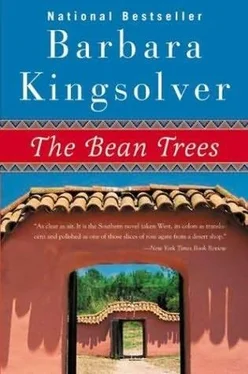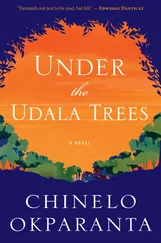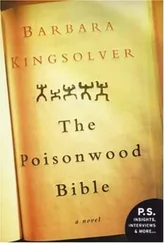‘You fight back, Taylor. Nobody picks on you and lives to tell the tale.”
I ignored this. “Look at those guys out in the park with no place to go,” I said. “And women, too. I’ve seen whole families out there. While we’re in here trying to keep the dry-cleaner bags out of the kids’ reach, those mothers are using dry-cleaner bags for their children’s clothes , for God’s sake. For raincoats. And feeding them out of the McDonald’s dumpster. You’d think that life alone would be punishment enough for those people, but then the cops come around waking them up mornings, knocking them around with their sticks. You’ve seen it. And everybody else saying hooray, way to go, I got mine, power to the toughest. Clean up the neighborhood and devil take the riffraff.”
Lou Ann just listened.
“What I’m saying is nobody feels sorry for anybody anymore, nobody even pretends they do. Not even the President. It’s like it’s become unpatriotic.” I unfolded my wad of handkerchief and blew my nose.
“What’s that supposed to teach people?” I demanded. “It’s no wonder kids get the hurting end of the stick. And she’s so little, so many years ahead of her. I’m just not up to the job, Lou Ann.”
Lou Ann sat with her knees folded under her, braiding and unbraiding the end of a strand of my hair.
“Well, don’t feel like the Lone Ranger,” she said. “Nobody is.”
Night Blooming Cereus
Turtle turned out to be, as the social worker predicted, resilient. Within a few weeks she was talking again. She never did anything with the anatomical rag dolls except plant them under Cynthia’s desk blotter, but she did talk some about the “bad man” and how Ma Poppy had “popped him one.” I had no idea where Turtle had learned to talk like that, but then Edna and Virgie Mae did have TV. Cynthia was concerned about Turtle’s tendency to bury the dollies, believing that it indicated a fixation with death, but I assured her that Turtle was only trying to grow dolly trees.
Cynthia was the strawberry blonde social worker. We went to see her on Mondays and Thursdays. Of the two of us, Turtle and me, I believe I was the tougher customer.
It was a miserable time. As wonderful as the summer’s first rains had been, they soon wore out their welcome as it rained every day and soaked the air until it felt like a hot, stale dishcloth on your face. No matter how hard I tried to breathe, I felt like I couldn’t get air. At night I’d lie on top of the damp sheets and think: breathe in, breathe out. It closed out every other thought, and it closed out the possibility of sleep, though sometimes I wondered what was the point of working so hard to stay alive, if that’s what I was doing. I remembered my pep talk to Esperanza a few months before, and understood just how ridiculous it was. There is no point in treating a depressed person as though she were just feeling sad, saying, There now, hang on, you’ll get over it. Sadness is more or less like a head cold-with patience, it passes. Depression is like cancer.
Cynthia had spent a lot of time talking with both of us about Turtle’s earlier traumas, the things that had happened before I ever knew her. The story came out of me a little at a time.
But apparently it was no news to a social worker. Cynthia said that, as horrible as it was, this kind of thing happened often, not just on Indian reservations but in the most everyday-looking white frame houses and even places a whole lot fancier than that. She told me that maybe one out of every four little girls is sexually abused by a family member. Maybe more.
Surprisingly, hearing this wasn’t really what upset me the most. Maybe by then I was already numb, or could only begin to think about the misfortunes of one little girl at a time. But also, I reasoned, this meant that Turtle was not all alone. At least she would have other people to talk to about it when she grew up.
But there was other bad news. During the third week of sessions with Cynthia she informed me that it had recently come to the attention of the Child Protection Services Division of the Department of Economic Security, in the course of the police investigation, that I had no legal claim to Turtle.
“No more legal claim than the city dump has on your garbage,” I said. I think Cynthia found me a little shocking. “I told you how it was,” I insisted. “Her aunt just told me to take her. If it hadn’t been me, it would have been the next person to come down the road with an empty seat in the car. I guarantee you, Turtle’s relatives don’t want her.”
“I understand that. But the problem is that you have no legitimate claim. A verbal agreement with a relative isn’t good enough. You can’t prove to the police that it happened that way. That you didn’t kidnap her, for instance, or that the relatives weren’t coerced.”
“No, I can’t prove anything. I don’t understand what you’re getting at. If I don’t have a legal claim on Turtle, I don’t see where anybody else does either.”
Cynthia had these tawny gold eyes like some member of the cat family, as certain fair-haired people do. But unlike most people she could look you straight in the eye and stay there. I suppose that is part of a social worker’s training.
“The state of Arizona has a claim,” she said. “If a child has no legal guardian she becomes a ward of the state.”
“You mean, like orphan homes, that kind of thing?”
“That kind of thing, yes. There’s a chance that you could adopt her eventually, depending on how long you’ve been a resident of the state, but you would have to qualify through the state agency. It would depend on a number of factors, including your income and stability.”
Income and stability. I stared at Cynthia’s throat. In this hot weather, when everybody else was trying to wear as little as they could without getting arrested, Cynthia had on a pink-checked blouse with the collar pinned closed. I remembered hearing her say, at some point, that she was cool-blooded by nature.
“How soon would this have to happen?” I asked.
“It will take two or three weeks for the paperwork to get to a place where it’s going to get noticed. After that, someone from Child Protection and Placement will be in touch with you.”
The pin at her throat was an ivory and flesh-colored cameo that looked antique. As Turtle and I were leaving I asked if it was something that had come down through her family.
Cynthia fingered the cameo and laughed. “I found it in the one-dollar bin at the Salvation Army.”
“Figures,” I said.
Lou Ann had a fit. I had never seen her so mad. The veins on her forehead stood out and her face turned pink, all the way up to her scalp.
“Who in the hell do those people think they are? That they have the right to take her out of a perfectly good home and put her in some creepy orphanage where they probably make them sleep on burlap bags and feed them pig slop!”
“I don’t think it’s quite that bad,” I said.
“I can’t believe you,” she said.
But I was ready to give in. “What else can I do? How can I fight the law?” I asked her. “What am I going to do, get a gun and hold Turtle hostage in here while the cops circle the house?”
“Taylor, don’t. Just don’t. You’re acting like it’s a lost cause, and that I’m telling you to do something stupid. All I’m saying is, there’s got to be some way around them taking her, and you’re not even trying to think of it.”
“Why should I, Lou Ann? Why should I think Turtle’s better off with me than in a state home? At least there they know how to take care of kids. They won’t let anything happen to her.”
“Well, that’s sure a chickenshit thing to say.”
Читать дальше












